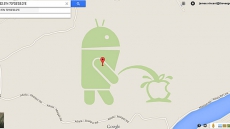MONTREAL — A Montreal tech company with big ambitions for global growth says it has an inexpensive solution for restaurateurs and other retailers looking to thrive in the digital age.
Lightspeed says its cloud-based software system can assist mid-sized retailers and restaurants manage inventory, take orders, process payments, analyze customer shopping patterns and develop an e-commerce presence.
Founder and CEO Dax Dasilva says Lightspeed's offerings are best suited for companies with at least $600,000 a year in sales per location and up to 50 stores.
For a monthly fee that can start as low as $76 a month, they can access Lightspeed software and apps either from mobile devices like iPads or older desktop computer systems.
Running a business is much more complicated than it was 20 years ago, Dasilva said. Business owners not only need to have strong in-store offerings — they also need a strong online and social media presence.
"So in order to be this modern independent retailer...they need somebody on their side to build systems that will help them be four people at once," the 39-year-old Vancouver native said.
Founded in 2005, Lightspeed is doubling its business annually. It already has 25,000 customers in more than 100 countries, including about 1,500 restaurants, that process $10 billion worth of yearly transactions.
It hopes to further expand its global reach after Quebec's Caisse de depot and Investissement Quebec led an $80-million investment involving original funding partners Accel Partners and iNovia Capital. Lightspeed said it has been inspired by Canadian tech companies like Ottawa's Shopify (TSX:SH) and Hootsuite in Vancouver.
"We want to be the tech anchor in Montreal," Dasilva said during an interview in his office in a renovated building in Old Montreal that houses 210 of the company's 350 employees — one of eight offices around the world.
Lightspeed is looking to take advantage of new regulations in Europe and North America to sell its retail and restaurant programs.
Quebec has joined several countries in Europe and Latin America that require bars and restaurants to provide sales transactions to ensure proper payment of taxes.
In the United States, the credit card industry is switching to chip cards long used in Canada to cut down on fraud. Starting Oct. 1, business owners rather than the card companies will be liable for any fraud from purchases made by magnetic-strip cards.
That's a big potential growth market for companies like Lightspeed that works with payment processors to offer the service, said Dasilva.
"Once the deadline is here I think it's only going to take a couple stories of people that lost money for people to want to invest in this (chip-reading) hardware."
Caisse de depot vice-president Christian Dube said the Caisse was drawn to invest by Lightspeed's growth potential outside Canada.
"We're really looking at this company on a global basis and the market share that they can take in the U.S. ... and what they can do in Europe," he said.





